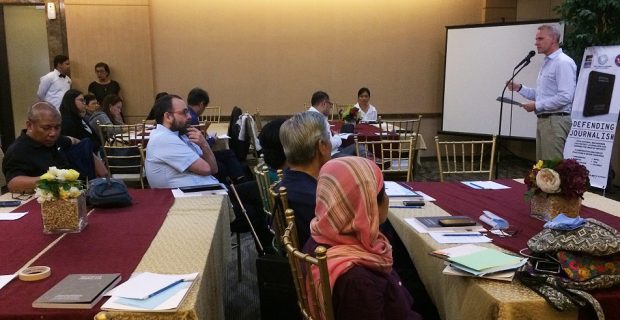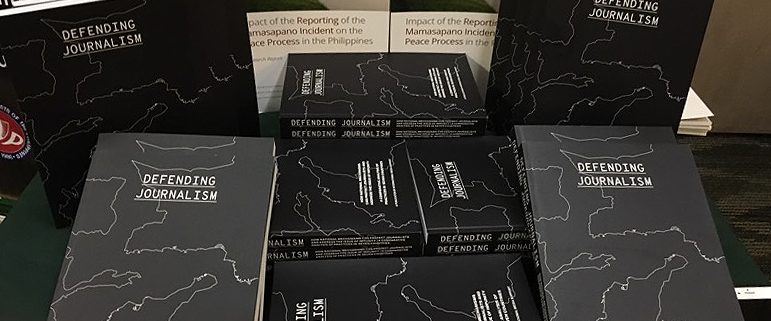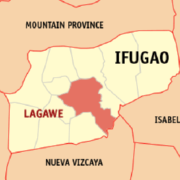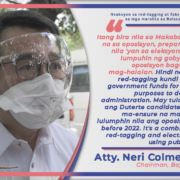NUJP, AIJC launch books on journalism
By April Burce
“Are we really a democracy when we kill journalists?” asked National Union of Journalists of the Philippines (NUJP) chairperson Nonoy Espina as he welcomed partners and guests to the launch of two journalism books “Defending Journalism” and the “Impact of the Reporting of the Mamasapano Incident on the Peace Process” in the Philippines in Quezon City Wednesday.
“These are trying times because we have already lost 11, which according to our records, is the worst ever in the first two years of any president,” Espina said, referring to the number of journalists killed under the Rodrigo Duterte presidency.
“We are afraid it might get worse before it gets better,” he added.
The first book, “Defending Journalism”, is a comparative analysis of how national mechanisms can protect journalists and address the issue of impunity in seven countries.
“Impact of Reporting of the Mamasapano Incident on the Peace Process in the Philippines,” is a review of how the Philippine mass media affected the national discourse after the incident that plunged former President Benigno Aquino to unprecedented lows during the last years of his term.
The books are a collaboration of the NUJP and the Asian Institute of Journalism and Communication with support from International Media Support (IMS).
In their messages, Lidasan and Ocampo stressed the importance of providing context in the reportage of vital issues, including conflict and human rights.
Journalist Satur Ocampo said, “the coverage of the investigations on countries with experiences of killings of journalists are mostly characterized by long-term social, economic, political and military conflicts. There’s always a connection between the way a state deals with armed conflicts and coverage of armed conflicts and how governments regarded journalists in accordance with the content of what they write.”
Commission on Human Rights chairperson Chito Gascon lauded journalists as human rights defenders, saying freedom of expression and freedom to information are non-derogable rights and cannot be exempted, excused or set aside even in cases of national emergency.
“That is how fundamental these rights are. And our journalists are at the forefront of upholding these rights. Unfortunately, these reports and our experience and history will show that there remains much to be done,” Gascon said.
Gascon pledged the CHR’s support for the campaign to defend freedom of the press and of expression, and to keep journalists safe in a country long described as one of the deadliest places for the profession.

IMS’s Lars Bestle pointed out that the launching of the books is crucial because freedom of expression is under threat in the Philippines.
In his message, IMS’s Lars Bestle pointed out that the launching of the books is crucial because freedom of expression is under threat in the Philippines.
Bestle added that a journalist is killed every five days around the world.
“Our key finding is that all media stakeholders –from government to media, police, and civil society—have to take responsibility and work together to ensure the media’s ability to report freely, safely and accurately without fear of retribution,” he added.
AIJC President Ramon Tuazon said that “Defending Journalism” is not just a book title but a constant reminder to continuously protect freedom of the press and freedom of expression.
“We often encounter publications that examine, ad infinitum, the root causes of impunity in the killing of journalists. ‘Defending Journalism’ provides a fresh approach by choosing to highlight what various stakeholders have successfully done and can do to address the issue and not to be hostaged by the problem,” Tuazon said.
The event was participated in by representatives from major journalism and news organizations including NUJP, IMS, AIJC, UNESCO, Philippine Press Institute (PPI), Center for Community Journalism and Development, Center for Media Freedom and Responsibility, Moro-Christian People’s Alliance, as well as representatives from the Royal Danish Embassy, and Sri Lankan ambassador to the Philippines Aruni Ranaraja. #







